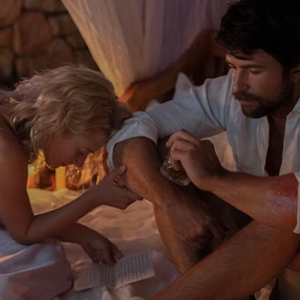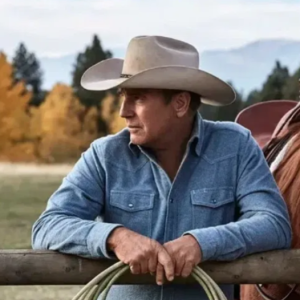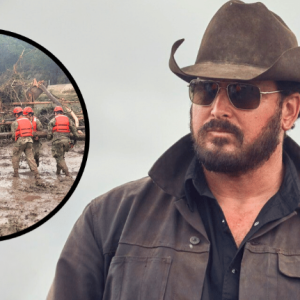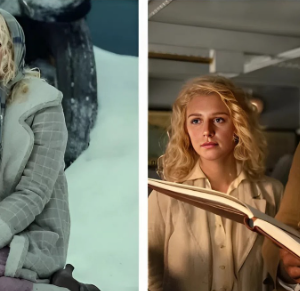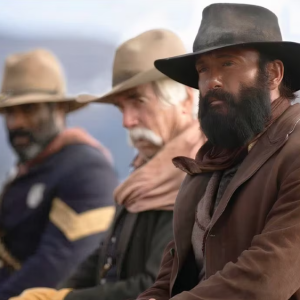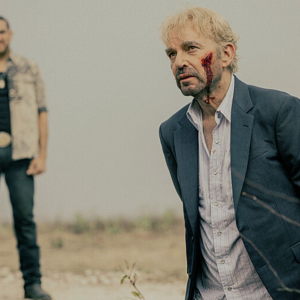For decades, Harrison Ford’s name has been synonymous with cinematic legend, his filmography a testament to an illustrious career defined by iconic roles. From the early nuances of The Conversation to the global phenomenon of blockbusters like Star Wars and Indiana Jones, Ford established himself as a bona fide movie star whose presence alone could fill theaters. His on-screen characters often exuded a gruff charm, an intrepid spirit, or a cynical world-weariness that became his signature. Yet, a significant and groundbreaking shift in his career trajectory has recently unfolded, demonstrating the evolving landscape of entertainment and Ford’s willingness to embrace new challenges: his unprecedented foray into episodic television. This pivot has not only offered audiences a fresh perspective on the veteran actor but has also deeply enriched the sprawling narrative of the Yellowstone universe, a franchise that has redefined modern Western storytelling.
The year 2022 marked a pivotal moment for Ford, as he embarked on not one, but two, significant television roles, shattering a career-long tradition of exclusively starring in feature films. One of these groundbreaking ventures was 1923, the highly anticipated prequel series to Taylor Sheridan’s massively popular Yellowstone. This series plunges viewers into an earlier, equally brutal chapter of the Dutton family saga, set amidst the formidable challenges of the early 20th century in Montana. Ford takes on the formidable role of Jacob Dutton, the patriarch of the Yellowstone Ranch and brother to James Dutton, the original settler from the prequel 1883. His portrayal of Jacob is a masterclass in weathered resilience, depicting a man burdened by the weight of his family’s legacy and the relentless threats to their sprawling land. Jacob Dutton is not merely a land owner; he is the embodiment of a generation fiercely determined to protect what they have painstakingly built, battling economic hardship, a devastating pandemic (the Spanish Flu), the looming shadow of Prohibition, and severe drought. These external pressures are compounded by escalating conflicts with rival cattle ranchers and the systemic injustices faced by Native American communities, particularly the indigenous youth subjected to forced assimilation in government-run boarding schools.
Ford’s performance as Jacob anchors the series with a gravitas and quiet strength that perfectly encapsulates the enduring spirit of the American West. He brings a raw authenticity to Jacob’s unwavering resolve, whether he’s facing down a blizzard, confronting a ruthless land baron, or wrestling with the moral complexities of survival. Opposite him, the equally formidable Helen Mirren shines as Cara Dutton, Jacob’s resilient and sharp-witted wife. Their on-screen chemistry is palpable, portraying a partnership forged in hardship and unwavering devotion. Cara is the bedrock of the family, providing emotional support and strategic counsel, often displaying a pragmatic strength that mirrors Jacob’s own, making them a formidable duo against the unforgiving backdrop of their era. The narrative of 1923 is a stark exploration of survival, sacrifice, and the often-violent birth of modern America, intertwining the Duttons’ struggle for their ranch with broader historical events that shaped the nation. It illustrates the origins of the Dutton family’s deep-seated connection to their land, explaining why subsequent generations, like John Dutton III in Yellowstone, are so unyielding in its defense. This prequel not only fills in critical gaps in the Yellowstone lore but also deepens the emotional resonance of the main series by providing historical context to the Duttons’ entrenched identity and their perpetual fight.
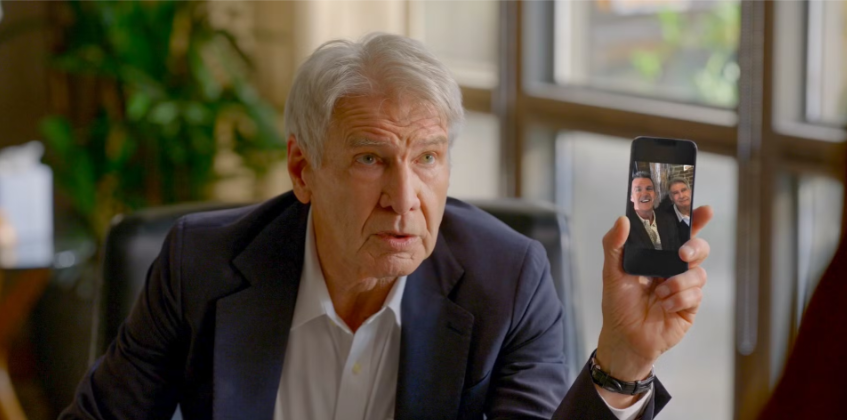
The decision for an actor of Ford’s stature to commit to a television series speaks volumes about the current state of prestige television. For much of Hollywood’s history, a clear demarcation existed between film and television actors, with the silver screen often viewed as the pinnacle of achievement. However, with the rise of streaming services, increased production budgets for TV series, and the appeal of complex, long-form storytelling, the line has blurred significantly. Shorter seasons, akin to extended films, offer greater flexibility and creative opportunities for actors. Ford’s decision to join 1923 reflects this paradigm shift, signaling that television is now a legitimate, even coveted, arena for Hollywood’s elite. His presence undoubtedly lent immediate credibility and immense star power to the burgeoning Yellowstone universe, drawing in an even wider audience eager to witness his performance in a format previously unexplored by the actor.
Beyond the rugged landscapes and epic struggles of 1923, Ford also embarked on another television project that showcased a remarkably different facet of his acting range: Apple TV+’s comedy-drama Shrinking. Co-created by Bill Lawrence, Jason Segel, and Brett Goldstein, Shrinking presented Ford in an uncharacteristically vulnerable and comedic light. He plays Paul, a curmudgeonly yet endearing therapist navigating his own personal and professional challenges. This role allowed Ford to shed his often-gruff persona, revealing a sweet and heartfelt side that resonated deeply with viewers. Unlike the stoic, hardened figures he’s often portrayed, Paul grapples with emotional complexities, offering a performance that was both refreshing and genuinely touching. While Shrinking showcased a lighter, more intimate side of Ford’s abilities, it was 1923 that positioned him squarely within one of the most compelling and expansive modern sagas on television, solidifying his role in extending the powerful legacy of the Dutton family and cementing his place in the annals of television history. Both roles represent a significant evolution in Harrison Ford’s illustrious career, demonstrating his adaptability and enduring appeal as he continues to captivate audiences across new mediums.
